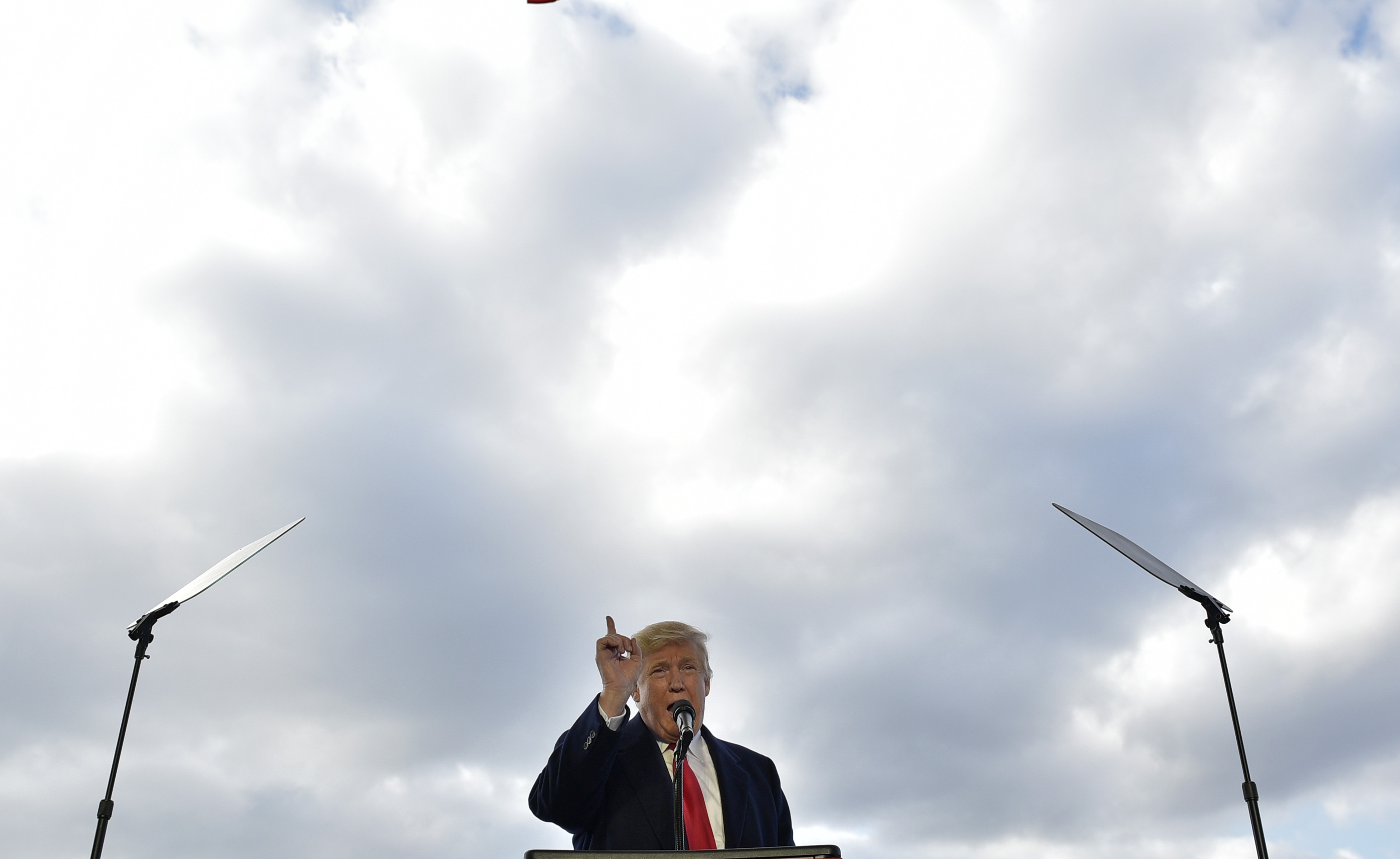The unbelievable magic of Trumponomics
File the president's latest projections under 'Fantastic economic forecasts and where to find them'


A free daily email with the biggest news stories of the day – and the best features from TheWeek.com
You are now subscribed
Your newsletter sign-up was successful
Donald Trump is already the worst U.S. president ever — at least according to a new survey of historians released this week. But don't worry, Trumpsters, it's still early. A decade of tremendous prosperity covers up a lot of blemishes, as the scandal-stained Bill Clinton — now ranked a very respectable 13th — can attest.
So how lucky is Trump to become president at the start of a sharp acceleration in long-term economic growth? At least that's the rosy forecast of his economic team, as laid out in the just-released Economic Report of the President.
Now, President Trump has repeatedly promised that his policies would make the economy great again, if not greater. "I think [growth] could go to 4, 5, and maybe even 6 percent, ultimately," he said after the signing the Republican tax cut bill last year.
The Week
Escape your echo chamber. Get the facts behind the news, plus analysis from multiple perspectives.

Sign up for The Week's Free Newsletters
From our morning news briefing to a weekly Good News Newsletter, get the best of The Week delivered directly to your inbox.
From our morning news briefing to a weekly Good News Newsletter, get the best of The Week delivered directly to your inbox.
Pump the brakes, Mr. President! Such warp-speed growth is highly unlikely unless Alexa becomes sentient and we enter the Singularity of super-intelligent robots. The U.S. economy hasn't grown anywhere near 6 percent in more than a half century and only for a short stretch. But, hey, Trump gonna Trump.
Of course, what Trump's economic team is actually shooting for is something closer to the historical postwar average of 3 percent GDP growth or a bit better. So no surprise that the White House economic forecast sees growth averaging ... wait for it ... 3 percent through 2028. Stuck the landing!
To put that forecast in context, remember that economic growth has averaged just over 2 percent since the Great Recession and hasn't notched even two consecutive years of 3 percent growth since 2004–2005. More than a decade of 3 percent growth would be a very impressive achievement.
The problem for Trump is that few experts outside the White House are anywhere near this optimistic. Economists at both the Federal Reserve and the Congressional Budget Office are predicting even weaker U.S. economic growth going forward, less than 2 percent annually. They know that harsh demographic reality — an aging population and falling birth rate — means the American workforce will grow more slowly in the future. To offset that decline and hit faster overall growth, productivity would have to increase to historically high levels.
A free daily email with the biggest news stories of the day – and the best features from TheWeek.com
That's just what Team Trump thinks will happen, thanks to the supposed wonder-working power of Trumponomics. Even though productivity has been growing at an average annual pace of just 0.7 percent a year for the past seven years, the Trump team expects that rate to nearly quadruple to 2.6 percent a year for as far as the eye can see. In other words, to believe the Trump forecast means you have to believe such a fantastical growth surge is reasonably possible and that tax cuts, deregulation, and the long-promised infrastructure spendathon will be the catalyst.
The good news is that at least somewhat faster productivity growth might indeed be possible. In a new report, analysts at the McKinsey Global Institute argue that an increase to at least 2 percent annually is realistic for advanced economies like America's. But one key is for new technologies such as artificial intelligence to penetrate more of the economy. While sectors such as information technology, media, and financial services are "digitizing," other sectors, such as education, health care, and construction, are not. There is actually lots of tech innovation in the U.S. economy, it's just not yet widely enough distributed.
Making that happen will take a lot more than just tax cuts or a deregulated Wall Street or energy sector. To be sure, the private sector will do much of this on its own. It often takes companies awhile to figure out how to best use new tech. So part of the "solution" is patience.
But public policy also has a role to play too, McKinsey says, such as by revamping worker training programs and making housing more available in high productivity cities such as San Francisco and New York by lowering barriers such as restrictive zoning and cumbersome building codes.
Policymakers, however, shouldn't bank on faster growth, especially if they use their cheery forecasts to then assume higher tax revenues and thus ignore needed spending reform in programs such as Medicare and Social Security. And that seems to be exactly what Trump is doing, given that Republicans in Washington have signed onto tax and spending increases that will take the federal debt burden to historically high levels.
Who knows, maybe Trump will prove those historians right after all.
James Pethokoukis is the DeWitt Wallace Fellow at the American Enterprise Institute where he runs the AEIdeas blog. He has also written for The New York Times, National Review, Commentary, The Weekly Standard, and other places.
